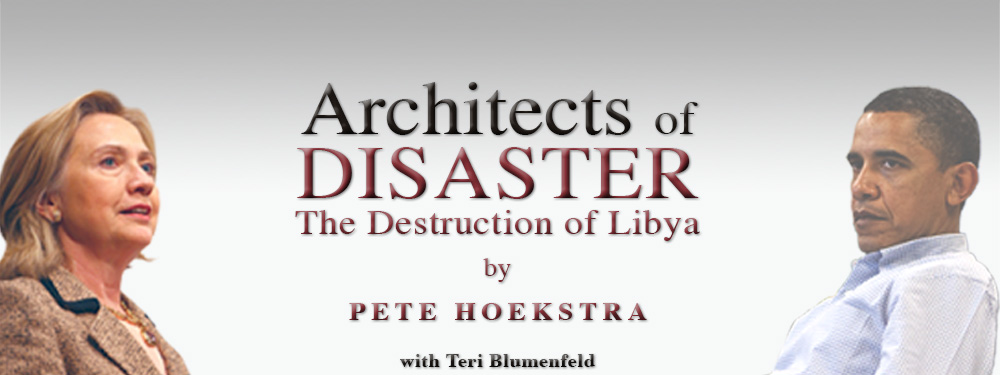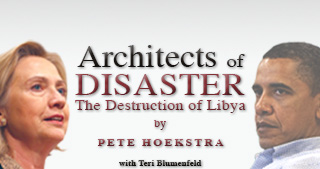By: Pete Hoekstra
Not long ago, Washington considered arming and training rebels engaged in what would become a fierce civil war.
Nations with an invested stake in the outcome discussed whether to support a perceived David against a corrupt Goliath in a strategically located region of the world. The consequences would have broad ramifications that would tip the scale in favor of one side.
The issue wasn’t one of conviction. It was a matter of unanswered questions about an uncertain ally.
The negotiations to which I refer could be mistaken as relating to arming the moderate Free Syrian Army against the oppressive regime of President Bashar al-Assad in 2012. Rather, I am referring to the debate over arming Libyan “moderates” against Muammar Gaddafi in their 2011 uprising.
No conclusion was ever reached concerning Syria, but the U.S., NATO and the 22-member Arab League provided opposition fighters in Libya with significant funding and direct military assistance in the name of supporting humanitarian efforts and democratic reforms.
The short-term mission was accomplished. The rebels overthrew Gaddafi and executed him. The long-term results have been an unmitigated disaster. Libya is now a chaotic failed state that exists in name only. Various Islamist radical jihadist groups have free rein. They brutally murdered four Americans, including U.S. Ambassador Chris Stevens. The soft underbelly of Europe is now exposed to the most radical elements from a terrorist playground.
The short-sighted misadventure should haunt the debate in Washington this week as it turns its attention to potentially arming rebels to fight the Islamic State in Syria and Iraq.
Yet the president failed to even mention Libya in his recent call to arms against the Islamic State of Iraq and Syria, and Congress has so far chosen to ignore this 800-pound gorilla sitting in the back row.
The nation’s leaders cannot chart a path moving forward in the region without closely examining the lessons learned from recent history.
Yes, Gaddafi was a ruthless dictator and supporter of terrorism during his 40-year reign in Libya, but he had become an ally of the United States in the fight against radical jihadism after 9/11.
I personally met with him on multiple occasions during my tenure as chairman of the House Intelligence Committee, and I talked with him about the challenges of maintaining stability in a very unstable region. The same Islamist terrorists threatening the West were a threat to his regime.
Like him or not, Gaddafi successfully kept them at arm’s length.
When it came time to choose between Gaddafi and the Islamists, however, the U.S. supported the rebels. It turned out that many of them were 180-degree opposites of who they claimed to be.
The Syrian rebels have a reputation much like what we heard about the Libyan rebels. They are moderates; they support human rights; they are committed to democracy in a strategically located country.
But in reality, we know even less about the Syrian fighters than we did about the Libyans. Before supporting the Syrian opposition today, we need answers to the questions that should have been asked before we armed the Libyan opposition in 2011.
Who is responsible for determining who will receive arms and training? How do we know that the weapons will not end up in the hands of Islamist terrorists? Are we headed toward a chaotic outcome in Syria similar to Libya after we defeat the Islamic State? What lessons have we learned from Libya that will now be applied in Syria?
A miscalculation regarding who is, and who is not, an ally against radicalized religious extremists could result in dangerous consequences that reverse decades of gains in the long war. America needs to fully grasp the lessons learned from our history of fighting radical jihadists. There have been successes and failures. Both need to be revisited in light of the current debate, so that we don’t repeat the grave mistakes of the past.
Pete Hoekstra is the former Chairman of the U.S. House Intelligence Committee and the Shillman Senior Fellow with the Investigative Project on Terrorism.


